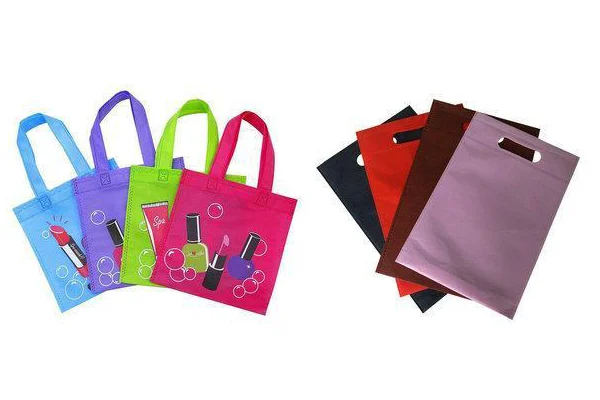As sustainability becomes increasingly important in daily choices, the materials used in everyday items deserve careful consideration. Shopping bags, in particular, represent a simple yet impactful way to make environmentally conscious decisions. While many alternatives exist, one option has gained attention for its unique durability, versatility, and eco-friendly characteristics.
The rise in popularity of non woven bags stems from their impressive balance of practical benefits and environmental advantages. Made from spun-bonded polypropylene fabric, these innovative carriers offer surprising benefits beyond basic functionality.
The manufacturing process creates a textile-like material without weaving, resulting in distinctive properties that make these bags suitable for numerous applications beyond simple shopping trips. Here are five compelling reasons why switching to these versatile carriers might be worth considering.
Exceptional Durability Despite Lightweight Design
One of the most remarkable qualities of non-woven bags is their impressive strength-to-weight ratio. Despite feeling lightweight and flexible, these bags demonstrate exceptional durability under stress. The unique manufacturing process creates a fabric where fibres are bonded together rather than woven, resulting in a material that resists tearing even when carrying heavier items. This strength allows for repeated use over extended periods, often years rather than months. The reinforced handles and stress points commonly included in quality designs enhance longevity.
Surprising Versatility Across Multiple Uses
The adaptability of non woven bags extends far beyond simple grocery shopping. These versatile carriers excel in numerous scenarios due to their balanced combination of structure and flexibility. Retail businesses appreciate their ability to showcase branding while providing customers with a reusable option. For promotional purposes, the large printable surface area offers excellent visibility for logos and messaging. Beyond shopping, these bags serve admirably for organisation, storage, gift packaging, and travel accessories.
Eco-Friendly Aspects Often Overlooked
While not biodegradable in conventional environments, eco-friendly carry bags offer several environmental advantages that merit consideration. Production typically requires significantly less energy and water than traditional woven fabrics. These resource efficiencies translate to a lower carbon footprint per bag. Additionally, most varieties can be recycled through appropriate facilities at the end of their useful life. Consider these environmental factors:
- It requires approximately 70% less energy to produce than cotton equivalents
- Minimises water usage during manufacturing
- Creates less air pollution during production
- It can be recycled into other polypropylene products
- Replaces dozens or hundreds of single-use bags over a lifetime
The extended lifespan of these durable carriers means fewer bags entering waste streams overall, making them an environmentally sensible choice when used repeatedly over time.
Practical Maintenance and Hygiene Benefits
The practical care advantages of these bags contribute significantly to their growing popularity. Unlike many natural fabric alternatives, these bags resist moisture absorption, making them less susceptible to mold and bacterial growth. This quality proves particularly valuable for grocery shopping, where occasional spills might occur. Cleaning requires minimal effort – most spills are easily wiped away with a damp cloth, while more thorough cleaning can be done with mild soap and water.
Cost-Effectiveness Through Extended Lifespan
The economic benefits of switching to nonwoven carry bags become increasingly apparent over time. While the initial purchase price may slightly exceed some alternatives, the extended useful life delivers superior long-term value. Many users report their bags remaining functional for several years of regular use. This durability translates to significant cost savings compared to repeatedly purchasing less durable options. When calculating the cost per use over the product lifespan, such bags frequently emerge as the most economical option for environmentally conscious consumers and businesses.
The benefits of incorporating non woven bags into daily routines extend beyond the obvious environmental considerations. Their remarkable durability, versatility, eco-friendly characteristics, maintenance simplicity, and cost-effectiveness make them an intelligent choice for individuals and businesses. The surprising advantages of this simple product demonstrate how thoughtful material choices can deliver multiple benefits while supporting more sustainable practices.


